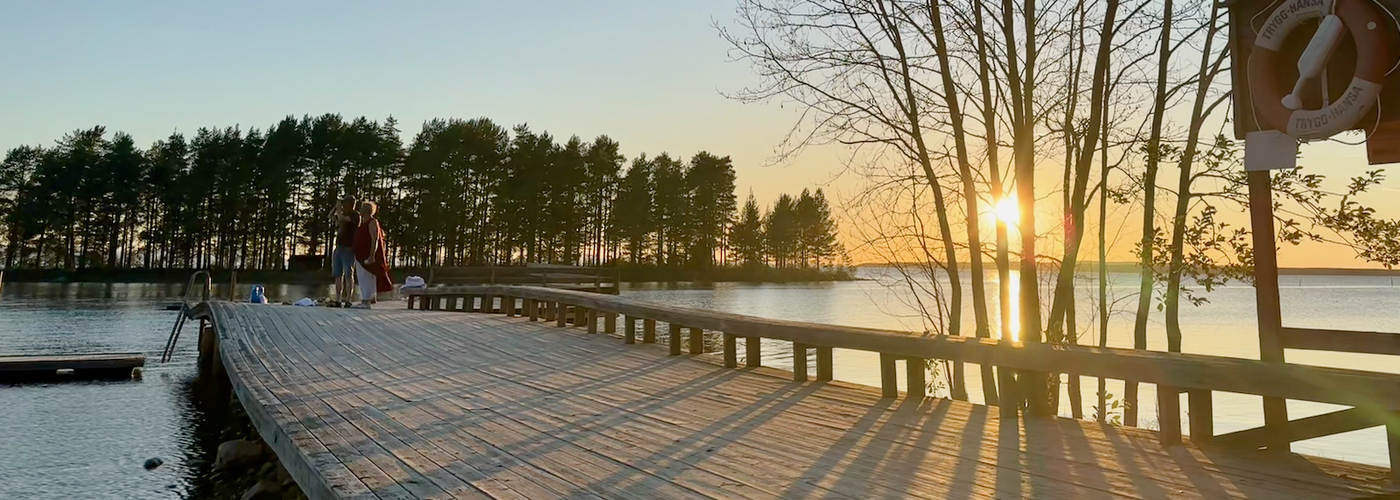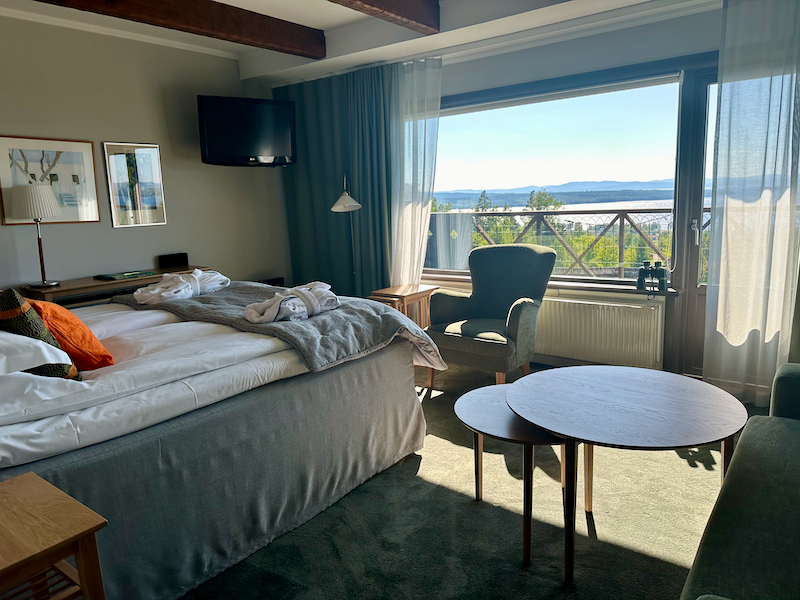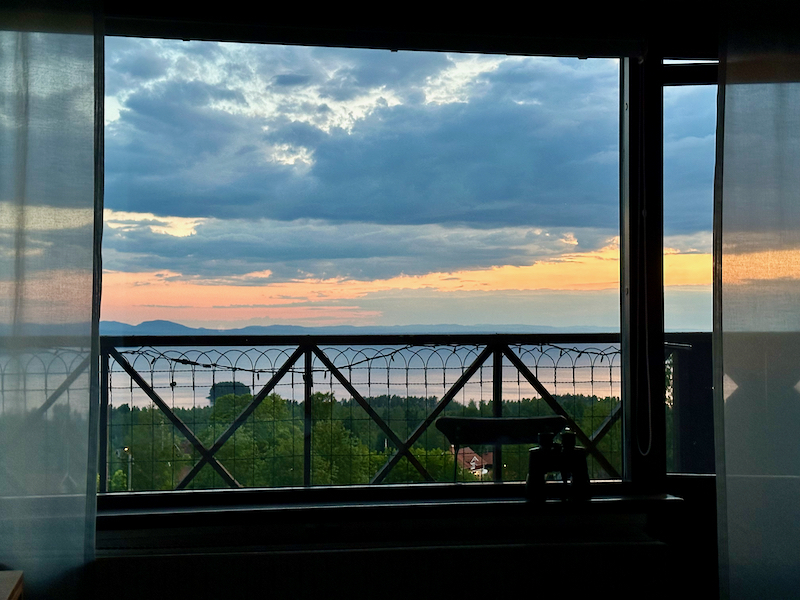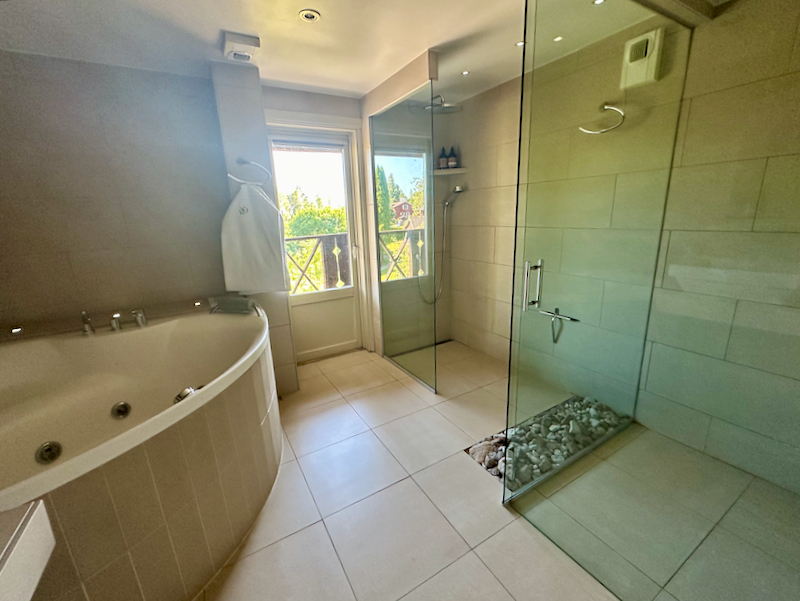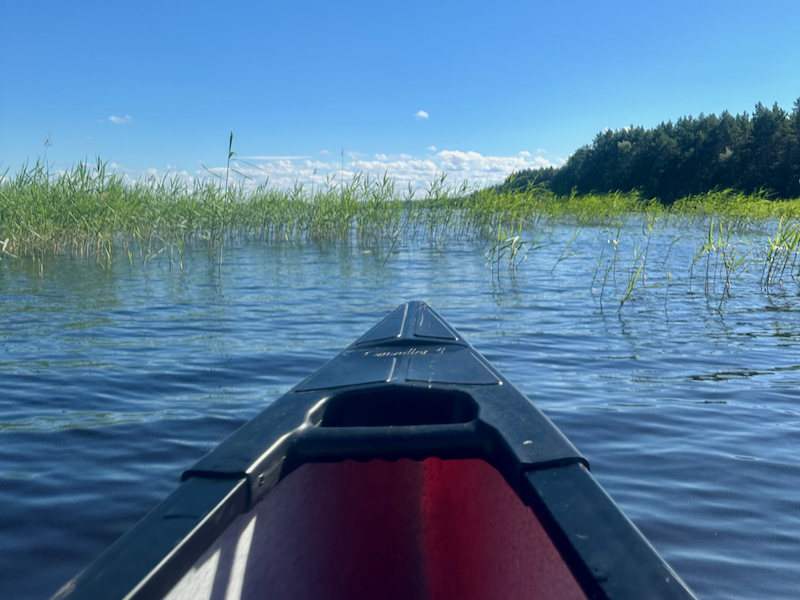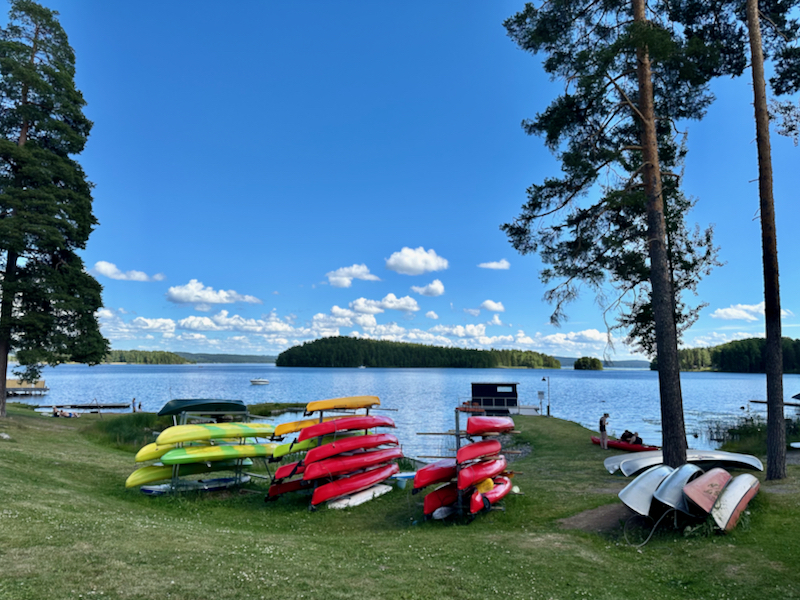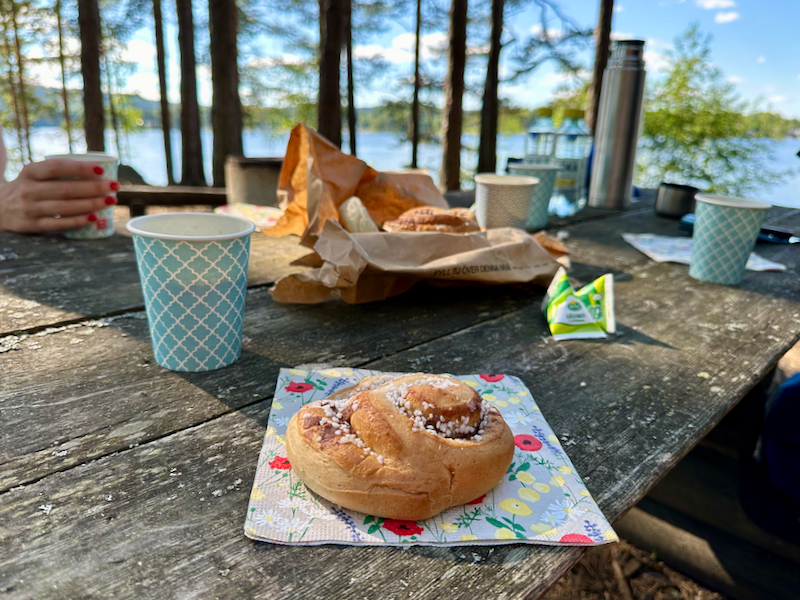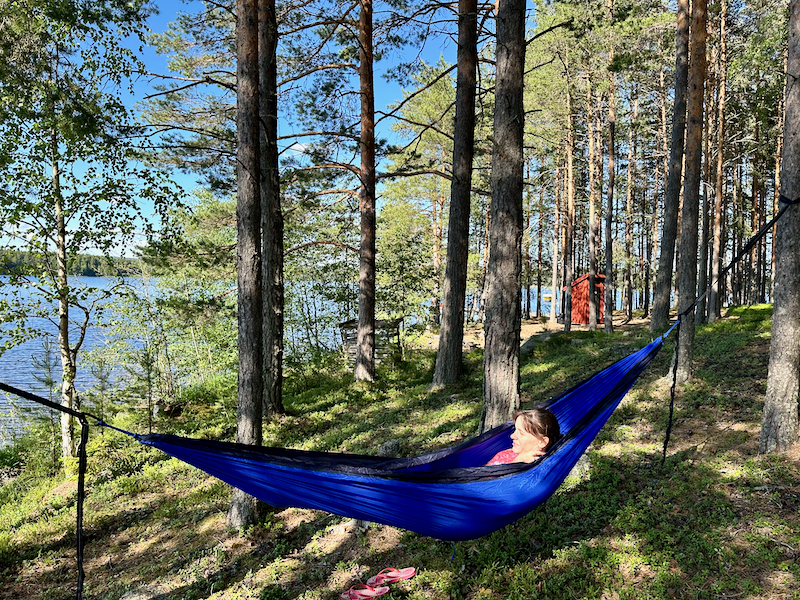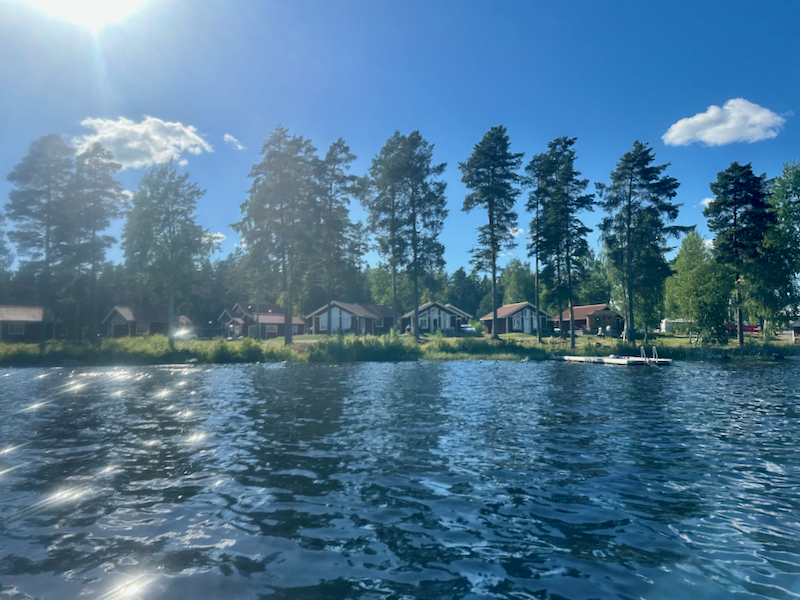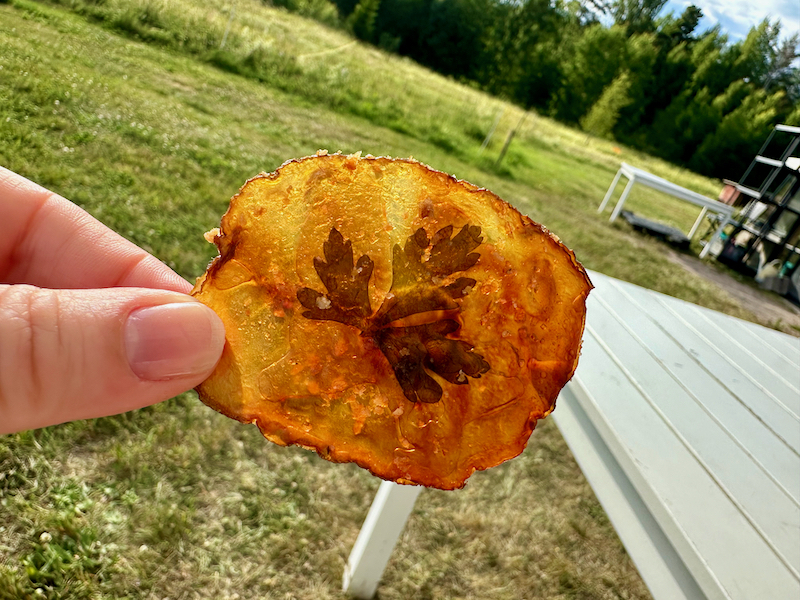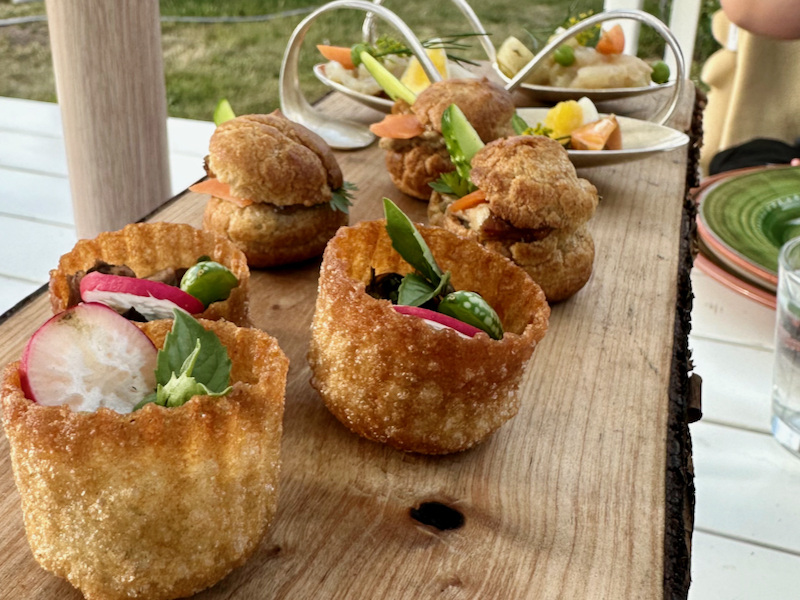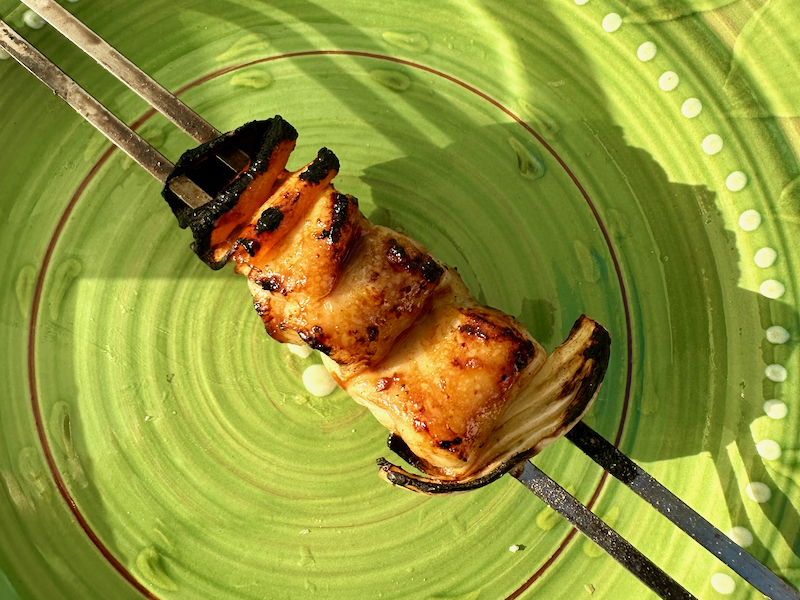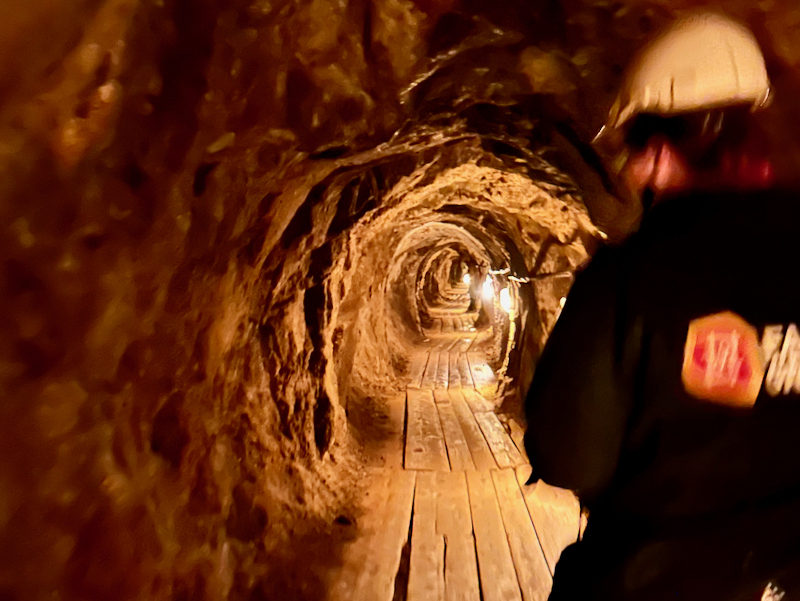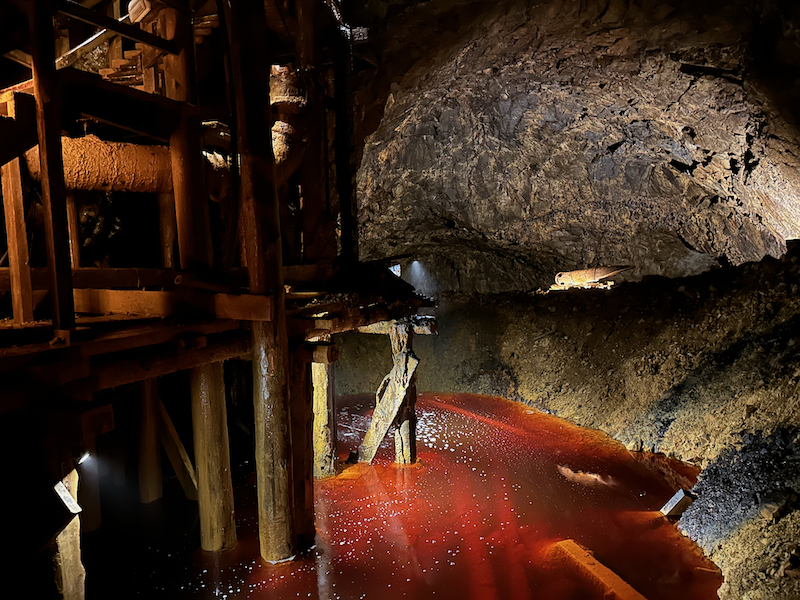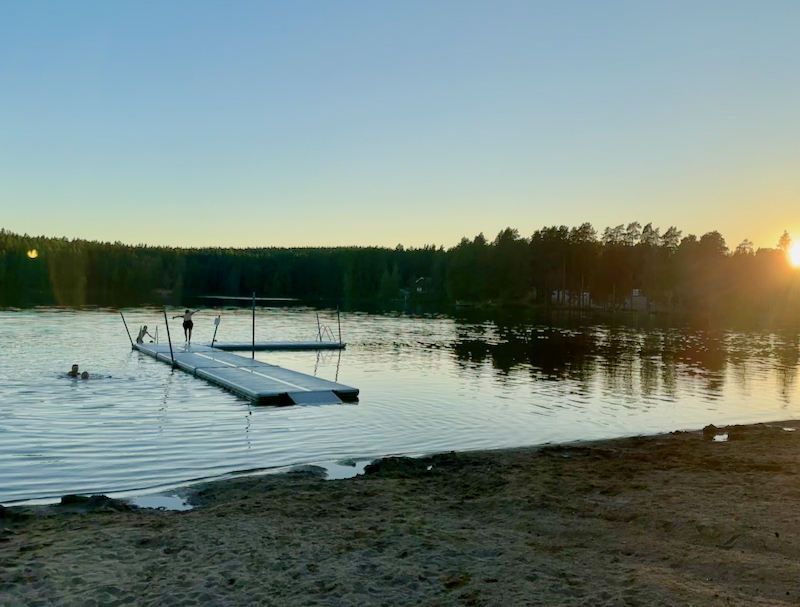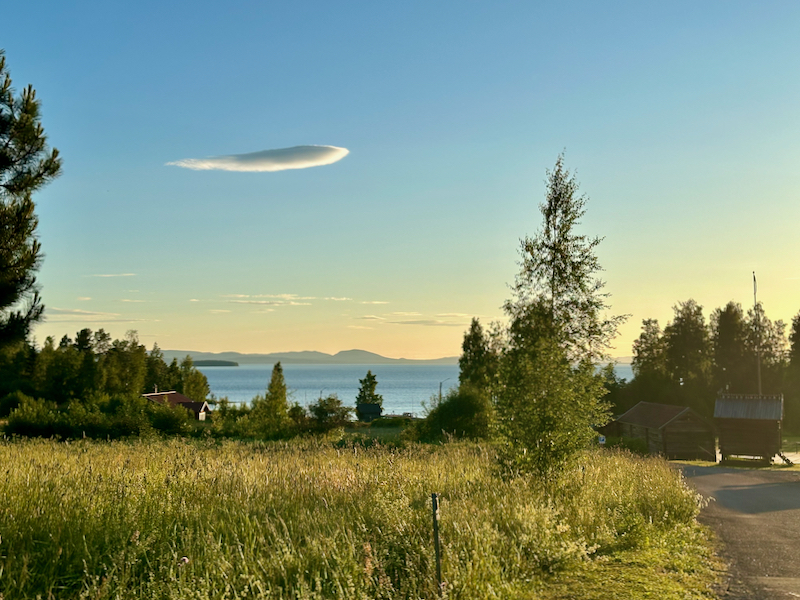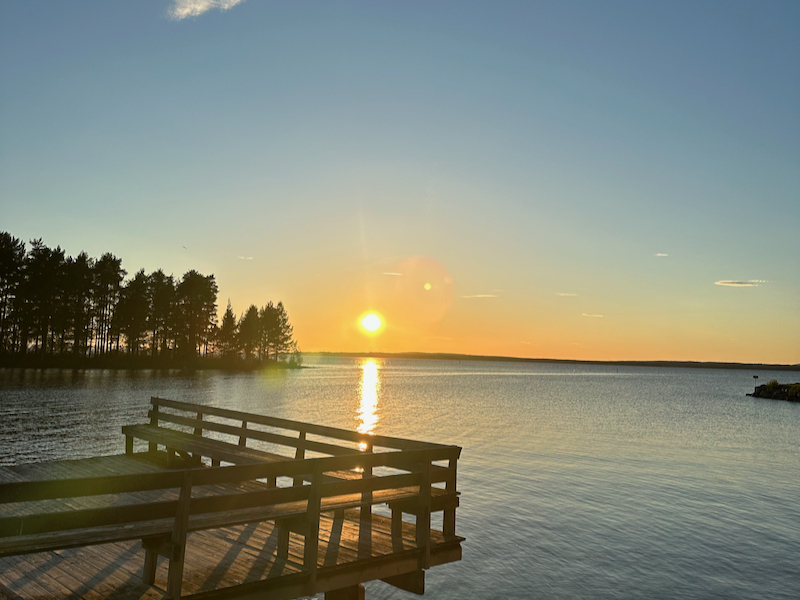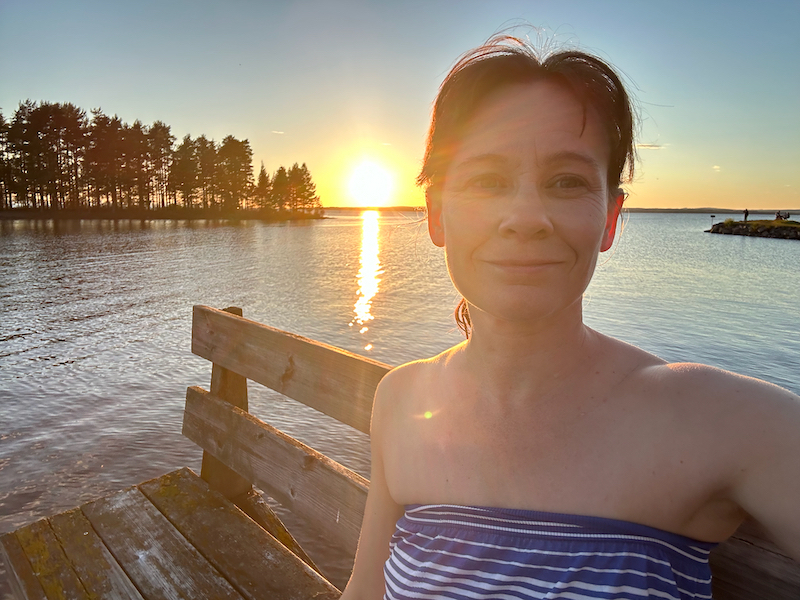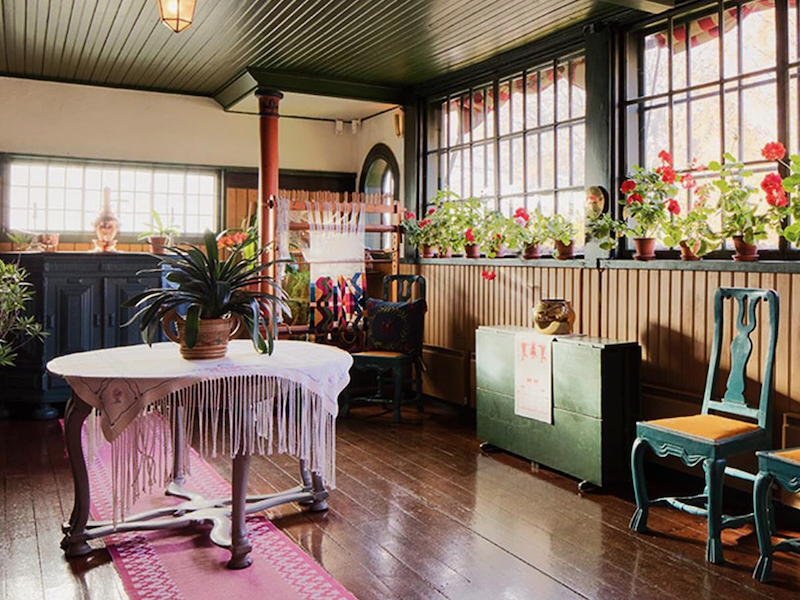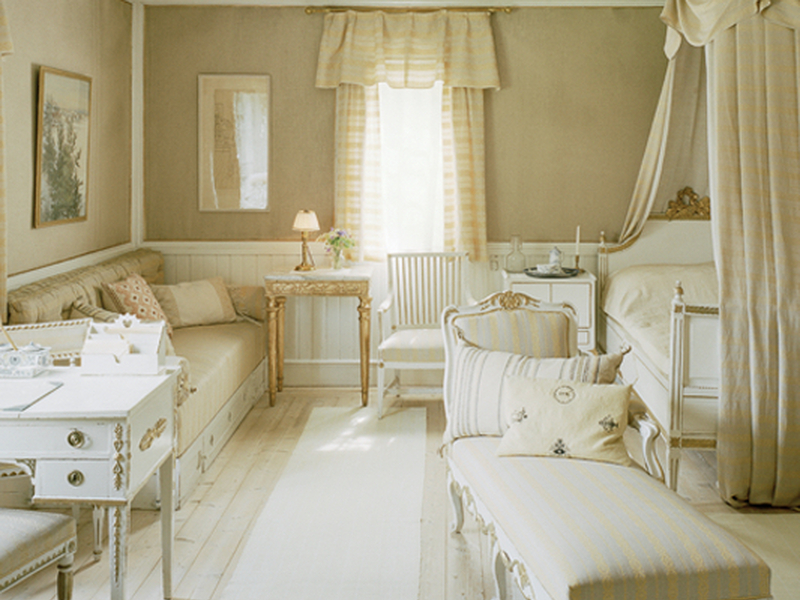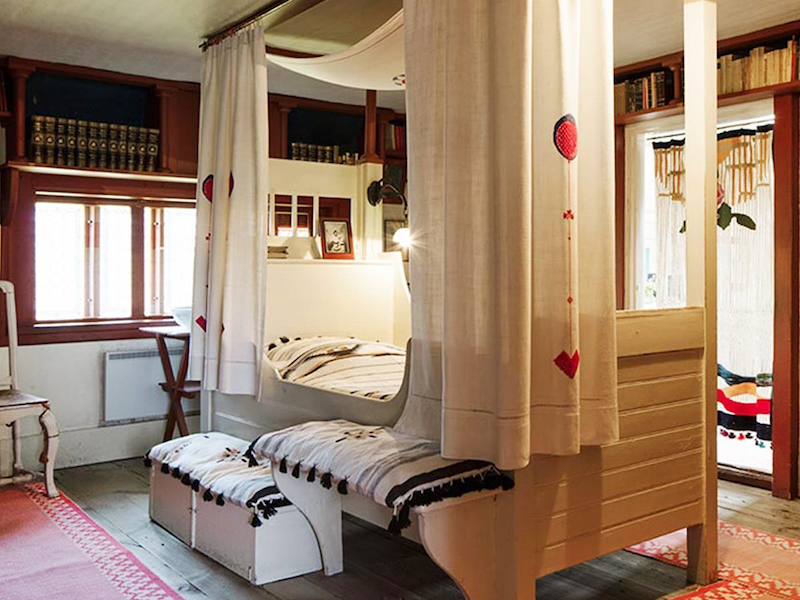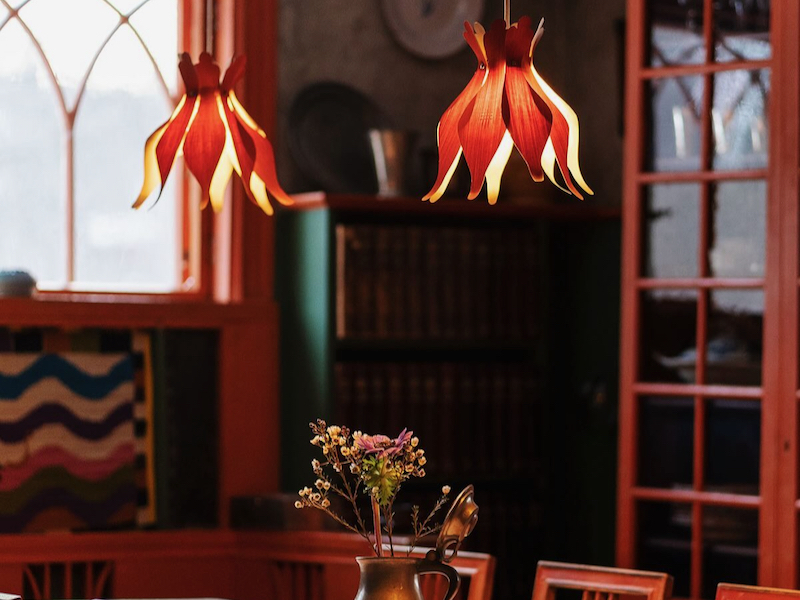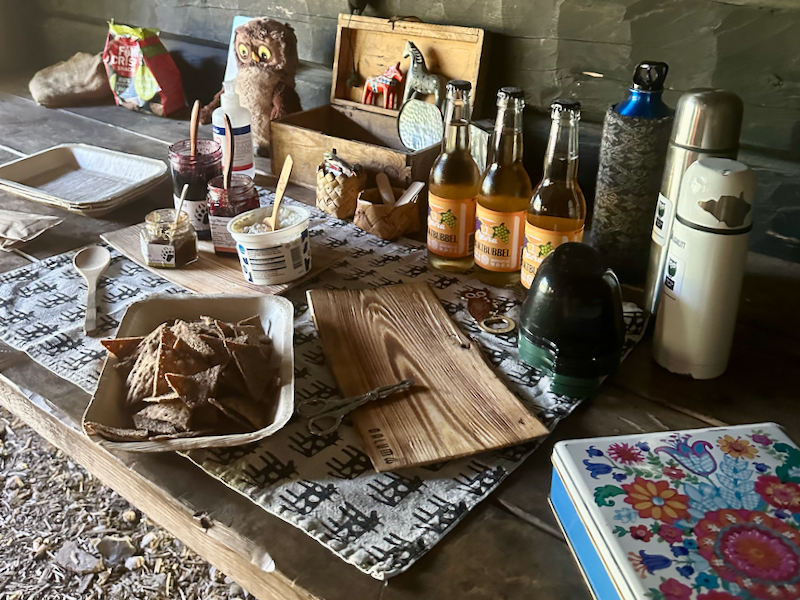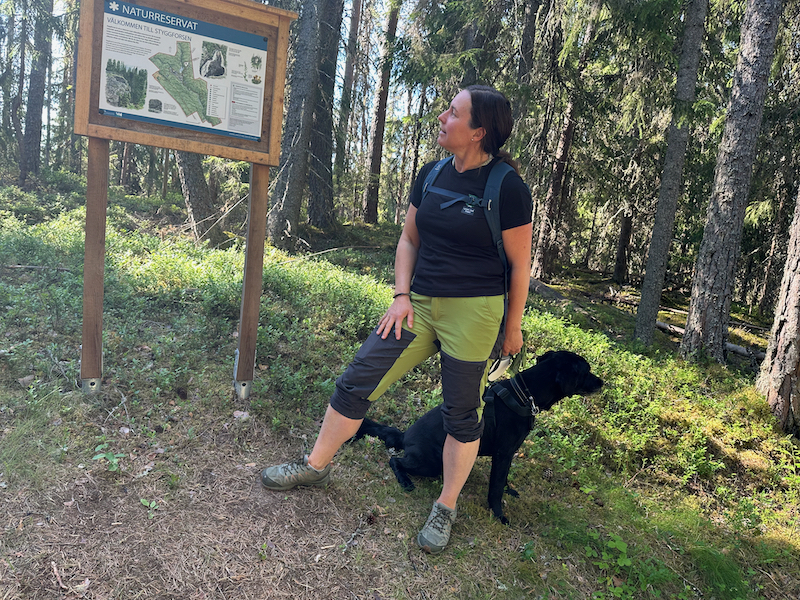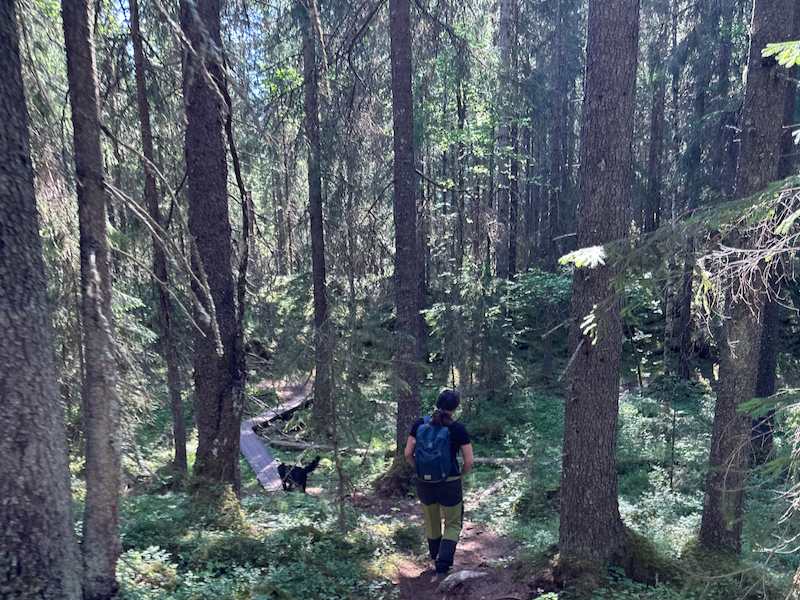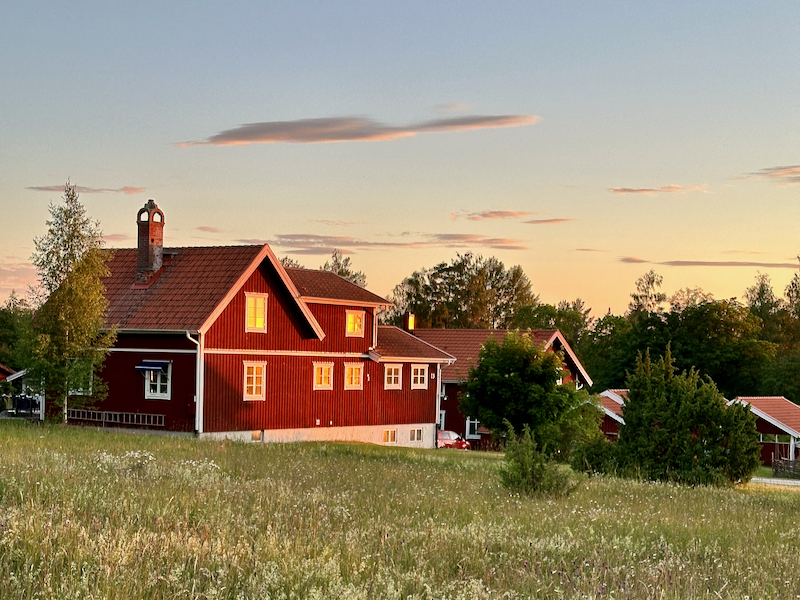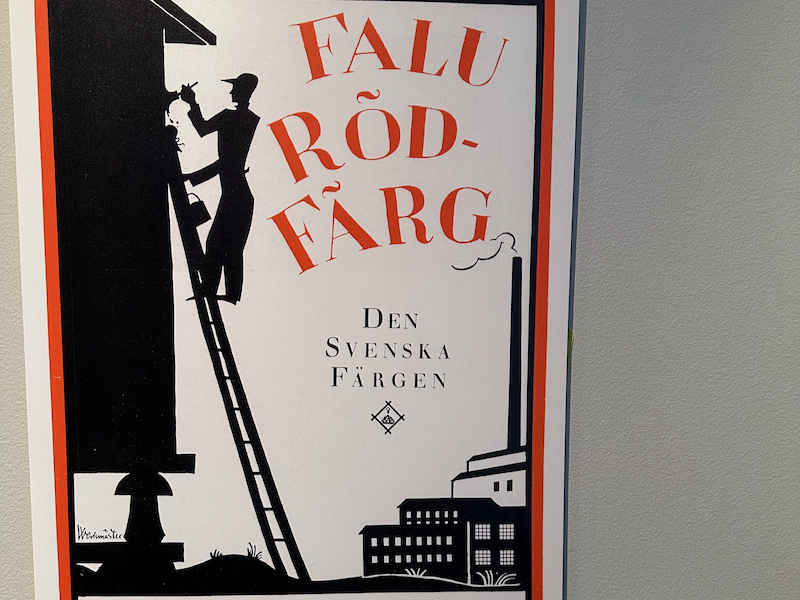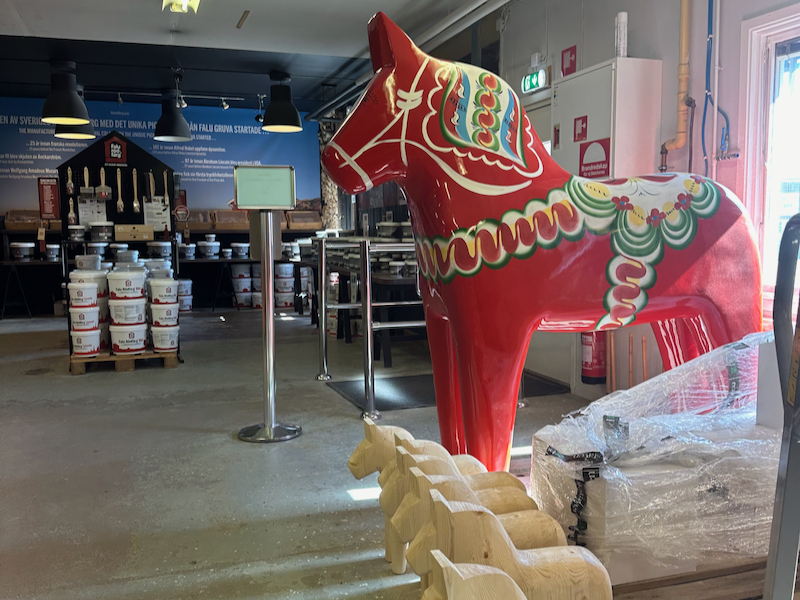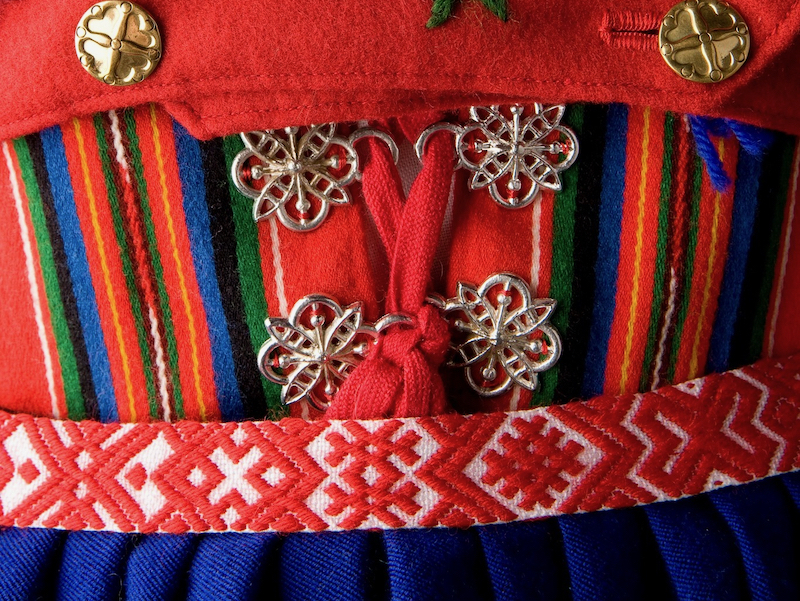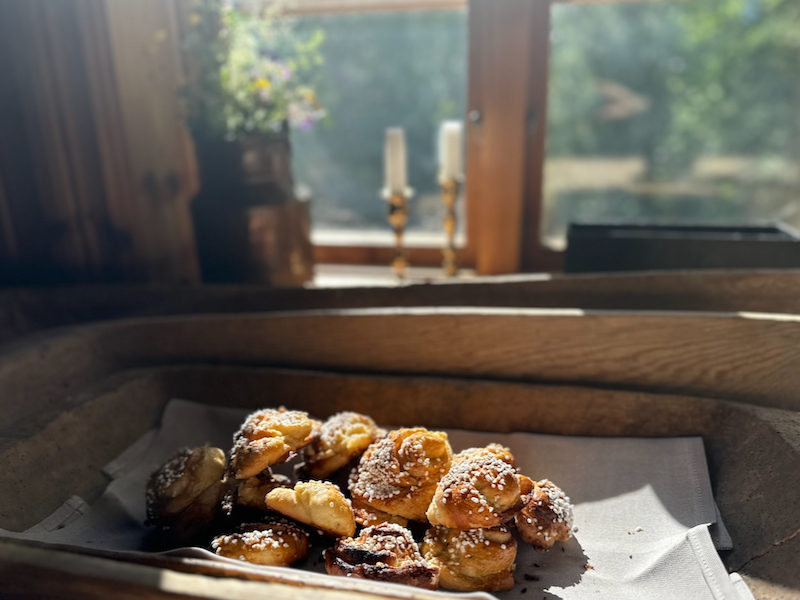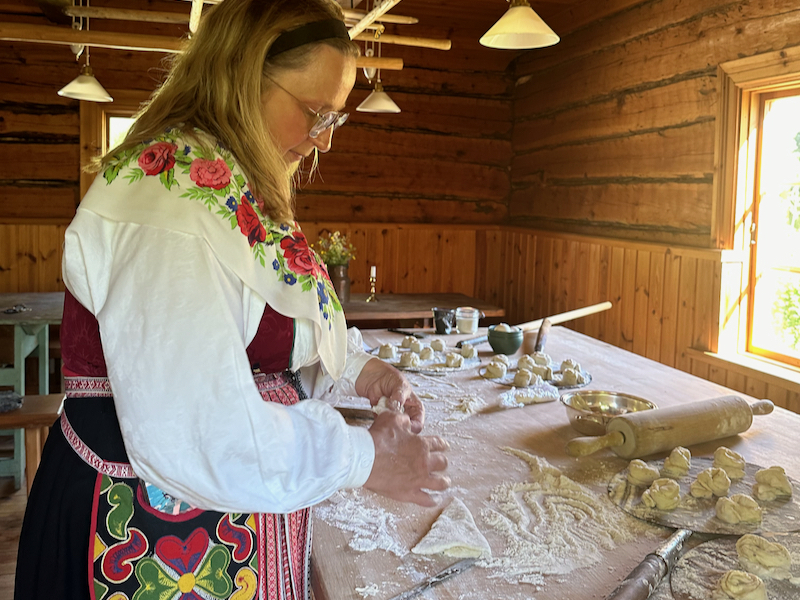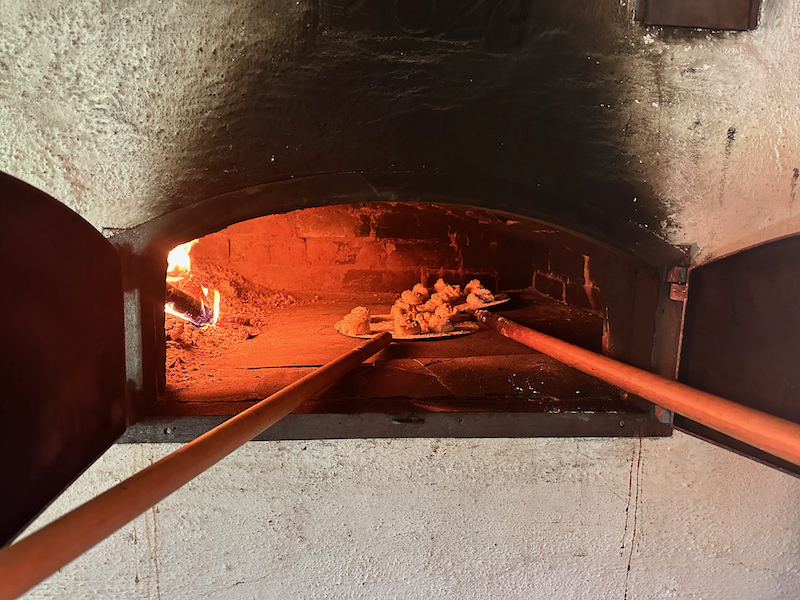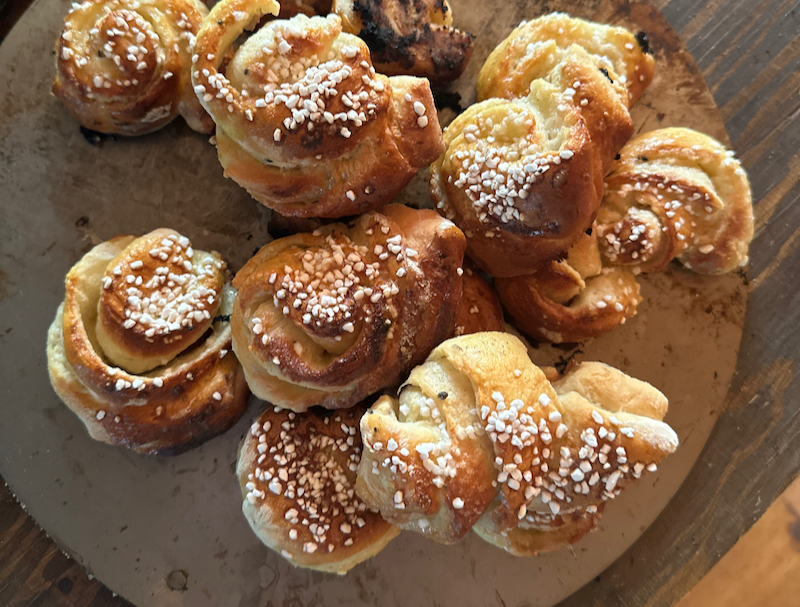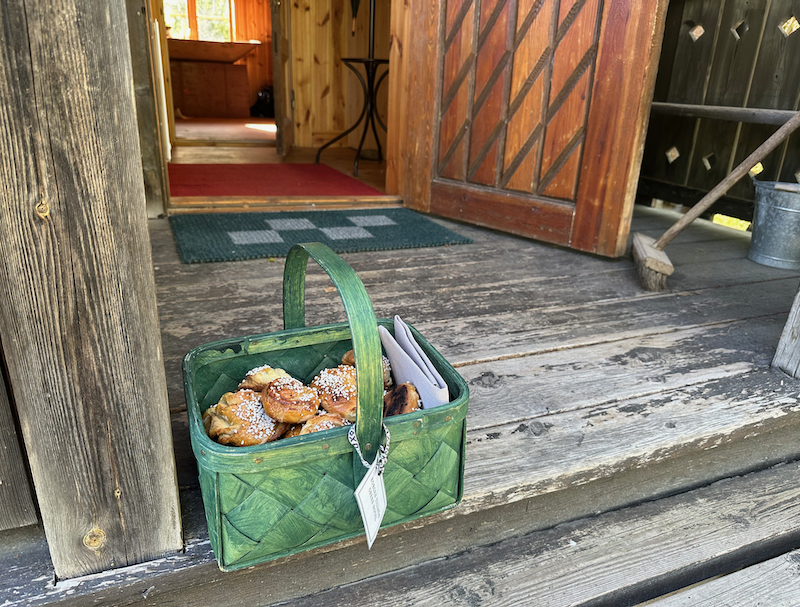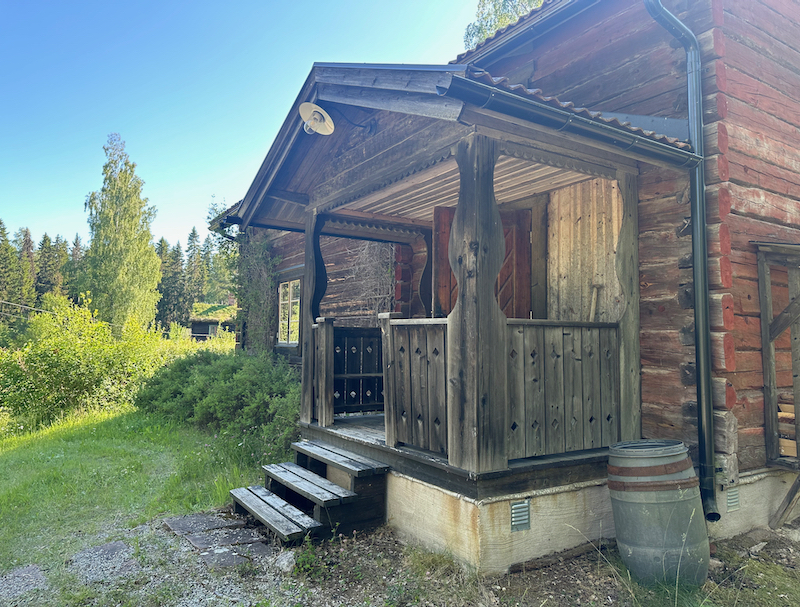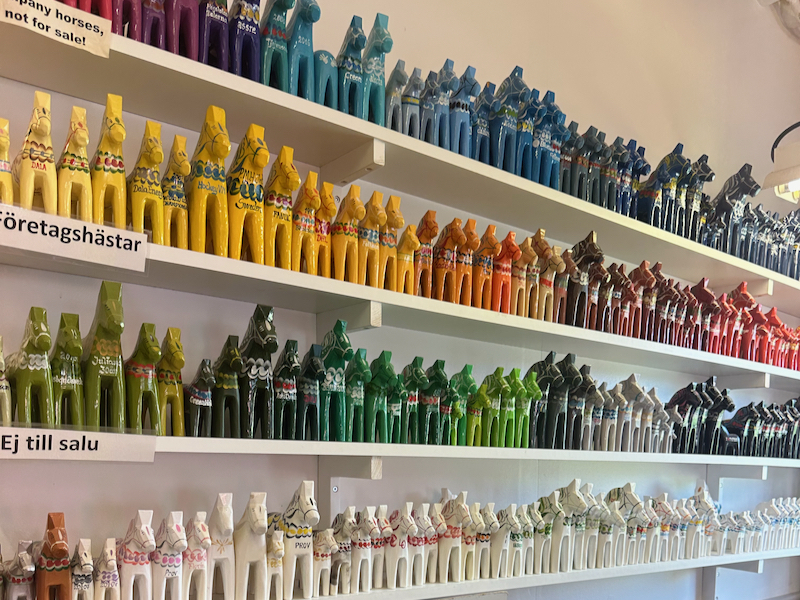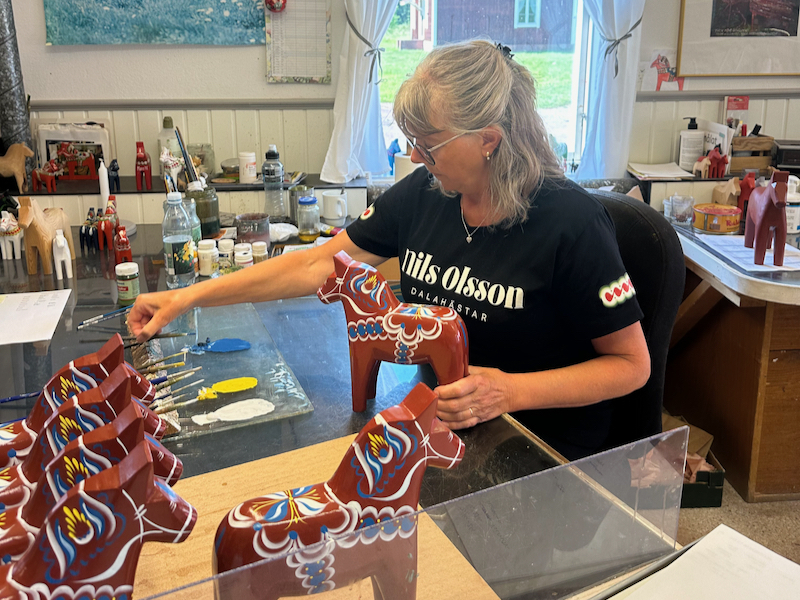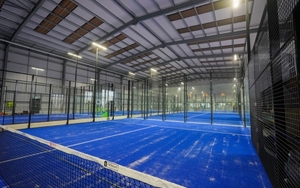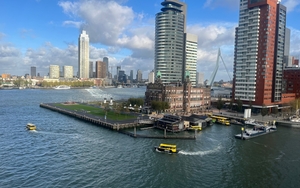Wondering where to go in Sweden in summer? Sarah Tierney finds a new holiday destination with direct flights from Manchester
ON the train heading north from Stockholm airport, I get my first proper look at Sweden since I came here on a family holiday as a child. It was 1985, I was eight-years-old, and my mum decided to take me and my brother on a road trip to Scandinavia. My memories are sketchy; eating crystal sweets that looked like icicles, sunbathing on a rugged coastline overrun with jellyfish, getting Gothenburg confused with Gotham City and wondering why there was no sign of Batman anywhere, my mum saying how expensive everything was.
The cost of living in Sweden is cheaper than in the UK, and although groceries cost more, eating out is actually more affordable.
That was nearly 40 years ago. Nowadays when I think of Sweden I think of Scandi Noir dramas where it’s usually dark and raining, all the better to contrast with the cosy apartments where coffee is usually brewing while a murder gets solved. I don’t think of outdoor swimming and wild flowers and leaving the curtains open at night because the night sky is so beautiful it feels wrong to hide it away.

Or at least not until I went there a few weeks ago, invited by Visit Sweden, who are on a mission to put their country up there with its Scandinavian neighbours as a holiday destination for UK tourists. Because while most of us will know someone who’s been to Norway or Denmark, few can say the same for Sweden. I was the only person in my school back in 1985 and I imagine that little has changed.

One reason for its lack of British tourists, aside from the bleak, wintery vibe captured in shows like The Bridge, is that as my mum observed back in 1985, it’s very expensive. Except nowadays, it’s not. The cost of living in Sweden is cheaper than in the UK, and although groceries cost more expensive, eating out is actually more affordable.

The train takes me to Falun in Dalarna County; an inland province of lakes and forests about three hours north of Stockholm by train (or two and half hours by car). Falun was once the biggest city in Sweden, bigger than Malmö and Stockholm, but nowadays it’s more like a decent-sized town than a bustling metropolis. It makes a good base if you want to be within walking distance of restaurants and shops and with easy access to the outdoors.
In Falun I stayed at the Clarion Collection Hotel Bergmästaren, which had the cosy yet stylish Scandi design down to a tee. From there we drove to The Green Hotel in Tällberg on the shore of Lake Siljan - another good base for a holiday. The Green Hotel offers double rooms from £99 per night and has a luxurious feel; a guest’s helicopter is parked on the lawn when I arrive, and an original Picasso is hanging casually in the breakfast room. Barack Obama has stayed here, and I’m now telling everyone I had the same suite as him. It has jaw-dropping views of the hours-long sunset over Lake Siljan, plus its own jacuzzi and steam room - exactly what you need after a busy day of meeting diplomats and shaping geopolitics.

My own days at Falun and Tällberg are just as busy and well spent; I use them to explore the culture, food, lifestyle and outdoor activities of Dalarna in summer. There’s so much on offer here - hiking, mountain biking, kayaking, art galleries and museums, beach days by the lake, visiting pretty villages, eating at amazing restaurants.

And maybe I just got lucky, but the sky is an unbroken blue for the four days I’m in Sweden with a pleasant temperature in the mid to high 20s. It’s how June is supposed to be but rarely is in the UK anymore.

I have this nostalgic feeling a lot while I’m there - like I’m living in a long-gone, dreamlike version of June where the days go on forever, the lakes are clean and perfect for swimming, and there’s a hammock waiting in the dappled shade between the pine trees. All these things happen every summer in Sweden. It's why I'm going there again on a family holiday next year.
If you're wondering where to go in Sweden in summer, definitely put Dalarna on your list.
Sarah travelled to Dalarna, Sweden via KLM flight from Manchester to Stockholm. She was a guest of Visit Dalarna and Visit Sweden.
Ten things to do in summer in Dalarna, Sweden

1 Take a fika break at least once a day
Fika is the Swedish tradition of a coffee and cake break to revive your energy levels and get you through the day. It’s less faff than afternoon tea and not as calorific (or costly) as heading to Starbucks for a barista-made cappucino and a giant muffin. Think instead of a cup of good, strong filter coffee poured from a flask and something sweet; we had a square of strawberry cake with fresh cream, or a little piece of almond cake. It’s quick and simple; it might only be a ten-minute break, but because it’s not a big deal you can always have another one later on.
2 Spend a day on the water at Lake Runn
There are two big lakes in Dalarna - Lake Runn next to Falun and Lake Siljan which is part of the Siljan Ring - the largest meteor crater in Europe. Both make good bases for a holiday if you enjoy swimming, hiking, biking and messing about on the water. At Sjösidan Falun on the shores of Lake Runn, you can camp or stay in a lakeside cottage and spend your days kayaking or canoeing to quiet spots along the lake shore. We spent an afternoon canoeing with Max from outdoor activity provider Human by Nature, stopping halfway on an island for fika and some hammock time.
3 Experience the field-to-fork tasting menu at Solgårdskrogen
There’s no shortage of good places to eat out in Dalarna. The restaurants I visited all used local ingredients, such as cloud berries and chanterelle mushrooms, venison and reindeer meat, to create elegant dishes that spoke of a strong connection between the region’s cuisine and its natural landscape.

Nowhere was this more apparent than at Solgårdskrogen near Rattvik. The name translates as Sun Farm, because it’s open from mid June to mid August and is on a farm. Ingredients are grown here or supplied by local producers and foragers, the food is cooked in a greenhouse, and the tables are in a meadow between the two - you might see the chef picking the veggies and herbs for your next course while you eat. It’s owned by husband and wife team Genevieve and Jonathan Bjurenstedt. Genevieve is an experienced sommelier while Jonathan is head chef - they both worked at top restaurants in Stockholm and London before settling in Dalarna.

We had the eight-course tasting menu and because nobody was drinking, paired it alcohol-free options that had a complexity and depth of flavour you rarely find in a soft drink. I’m sure the wines are fantastic too but if you’re a non-drinker, you’re in for a treat.

As for the food; I’m no Michelin inspector but I’d be wanting to check this place out if I was. Each dish was beautifully presented, imaginative, intricate, and full of perfectly-honed flavours and moreish textures.
It set a new standard for me to compare other restaurants against. The setting will be hard to surpass too - surrounded by wild flowers, deep in the Swedish countryside. If you’re visiting Dalarna, you’d be daft not to eat here.

Solgårdskrogen offers a few different menus including a walk-in lunch menu and a pre-concert set menu when there’s an event on at the nearby Dalhalla - a natural amphitheatre that’s hosted gigs by Iggy Pop, Sting and Patti Smith over the years.
4 Listen to spooky stories in the depths of Falun Copper Mine
Falun ballooned in size in the 18th and 19th century because it was home to a vast mine which produced a third of the world’s supply of copper. Called Falu Gruva, it's now an UNESCO World Heritage Site that attracts as many people as the mine did in its heyday, with its complex of museums, shops, cafes and the popular tour of the mine itself.

Hardhat on, I follow my guide Joanna out of the bright sunlight into an underground world of narrow tunnels, 200m-deep mine shafts, and vast caverns, their furthest reaches lit with flickering orange lights and oil lamps. It’s man-made (they carved these huge spaces by hand) but it looks otherworldly and awe-inspiring.

Joanna reads from diaries and reports kept throughout its history as we stand in the dull copper light. While now it is a steady seven degrees, when it was a working mine, temperatures would have reached 40 degrees. An 18th century visitor described it as the closest you can get to hell.

One person who’d know about that is Fets-Mats whose body was discovered in a section of the mine that had been closed off for years. His legs were severed at the knee by a rock fall while the rest of him hadn’t deteriorated at all because it had been lying in coppery water that kept it preserved. Nobody knew who he was until an elderly lady took a look. Her fiancé had disappeared just before their wedding day many years earlier. All this time, she’d thought he’d left her, but now he was back. 42 years dead but with the face of a young man.
5 Take a late night lake swim
More daylight means longer evenings and more time to relax after work or school. In summer, a popular way to finish the day in Sweden is with a twilight swim in a local lake. You’re free to swim wherever you like in the Swedish countryside, and some places are set-up with jetties, changing huts and rafts for jumping off. We head to one of the most popular spots at about 10pm and find plenty of people there, enjoying the water as the sun sets. Like fika, outdoor swimming isn’t a big deal here, it’s just part of your day.
6 Look inside the artists’ homes where IKEA get their ideas
Carl and Karin Larsson and Anders Zorn are some of Sweden’s most significant artists, and while their names might not be that familiar in the UK, the things you see inside their homes will be. If you’ve ever shopped at IKEA, you probably own something influenced by (or directly lifted from) their houses in Dalarna. The Larsson’s playful, light-filled, practical interiors, filled with self-designed textiles and furniture and art, were a stark contrast to the stuffy, formal design of the early 20th century, and still look fresh and modern today.
The design team from IKEA visit each house twice a year to get inspiration. Be warned - you might want to re-think your entire home after taking the guided tour. If you’re into Scandi style, this is a chance to see its origins firsthand.
7 Eat waffles around a campfire in the forest
Imagine sitting down to just-cooked waffles with loganberry jam and freshly whipped cream in a sunny clearing hidden in the Swedish forest. On a Waffle Walk led by Lotta from Green Owl Travel we do just that. Lotta uses her knowledge of ecology, history, folktales and geology, to really bring the landscape to life around us. Then after an hour or so on the trail, she stops at a shelter and (with prior permission from the park rangers) lights a fire in the fire pit, using a knife, a flint, and, bizarrely, a compact tampon. Dry, lightweight, and flammable when pulled apart into cotton wool, they make excellent fire lighters - a top tip she got from the Swedish Army’s wilderness handbook.

Birch wood burning nicely, Lotta sends us off to make mandala art out of pine cones and moss while she cooks the waffles. Later we split up to write down what we can hear, see and feel in the quiet of the trees. I’ve been lots of forest walks but this one stands out as extra special.
8 Learn the history behind some of the most iconic symbols of Sweden
Think of the Swedish landscape and you’ll probably picture a lake or a forest and a red wooden cottage with a white trim. You’ll see houses like this all over Sweden but the paint, called falu rödfärg, all comes from one place: the waste material extracted from the Falun Copper Mine. This coppery sludge is an excellent preservative for wood (and bodies - see point 4).
Other familiar Swedish icons from this region are the painted Dala horse (more on that below) and the traditional folk costumes with their rich colours and beautiful embroidery. You can see examples of these and of other traditional handicrafts in the fascinating Dalarnas Museum in Falun.
9 Bake cinnamon buns in a wood cabin at The Green Hotel
This activity offered by The Green Hotel in Tällberg is a charming way to spend a few hours. In a cabin surrounded by birch trees and horses grazing, you can bake your own cinnamon buns and cook them over a wood-burning fire. It’s a soothing, engrossing activity - rolling out the dough, lining it with butter, and shaping it into spirals before you sprinkle the sugar on top. Imagine the smell (and taste) of just cooked cinnamon buns and fresh coffee, mixed with the smell of the wood smoke from the fire. I’d do this every day if I could.
10 Be mesmerised by an anthropomorphic robot carving a little wooden horse
At the Dalarnas Museum in Falun, I learned all about the origins of the Dala Horse and how it became an icon of Sweden. The museum shop had sold out - demand outstrips supply in the summer - and the craftspeople who hand-paint each one can only work so fast. At least nowadays they get some help in the form of a robot that cuts and carves horses in a hypnotic sequence that ought to be live-streamed as an ASMR video on YouTube. At the Nils Olsson factory where they’re made, you can watch the robot and meet the painters, then buy your own Dala Horse in the shop. It’s a great place to pick up souvenirs from Dalarna to remind you of your Swedish adventures when you get back home and back down to earth.
Follow Sarah @sarah.tierney5





